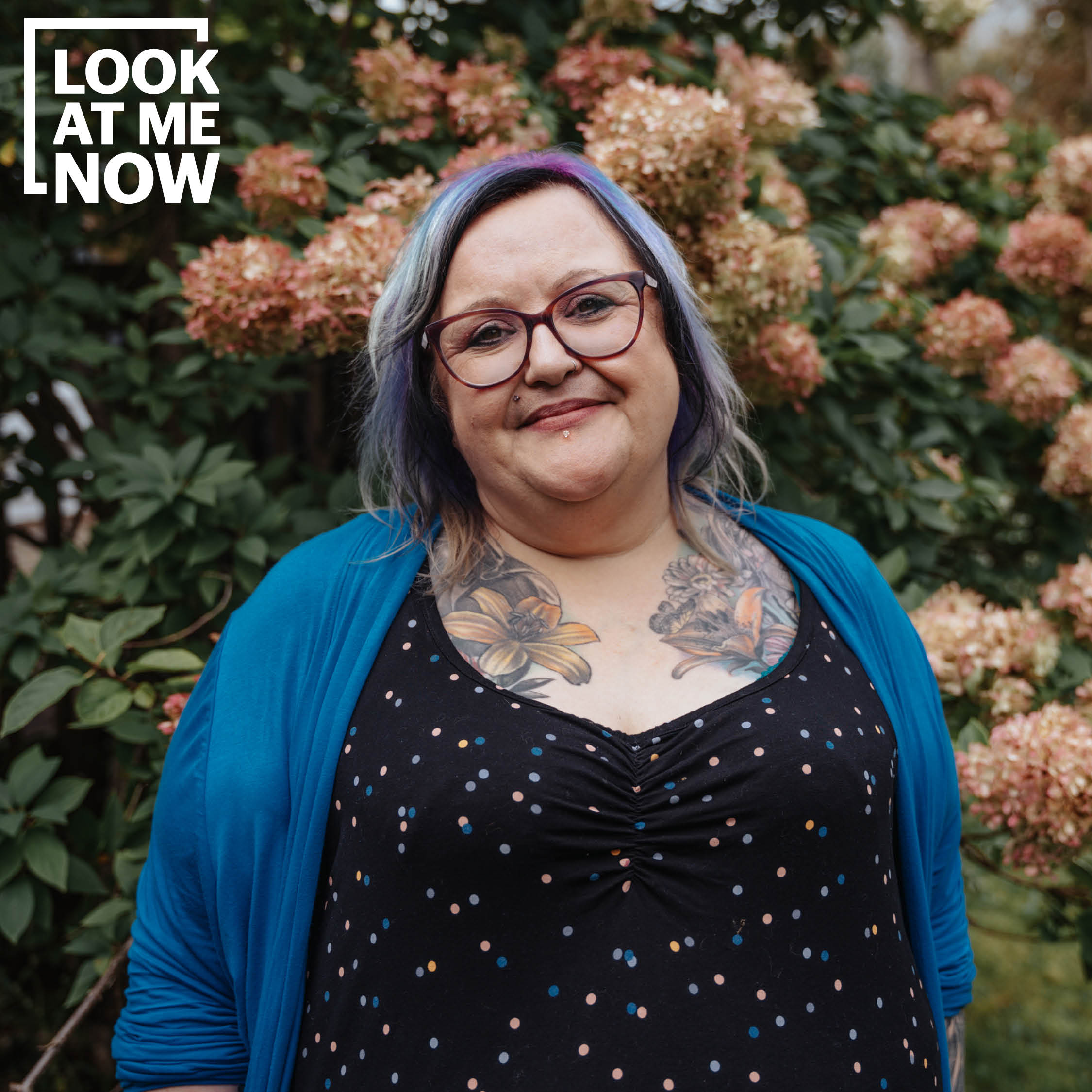Ann Harnish loves working in the mental health field. If asked, she would tell you it’s what she was born to do. When she began losing her sight to Retinitis Pigmentosa, she became depressed and found herself in a very dark place – concerned that she would lose her job if she told her employer about her deteriorating sight. With help from CNIB’s Come to Work program, Ann gained the confidence and tools to continue doing a job she loves – and she’s thriving.
---
Tell us about your job.
I am a residential care worker for Metro Community Housing Association, supporting adults living with mental illness in a residential care facility.

What do you love about your job?
It doesn’t feel like work to me. It feels like I am going to my other home. I get to spend hours with amazing people. When I leave for work, I’m going to spend time with my other family. We laugh, cry and do everything together. They have taught me so much. Not only am I a part of their lives, but their families’ lives too. We’re all family.
Tell us about one of your proudest moments that you’ve experience in your role.
It was Mother’s Day in 2016. I never liked this day because I was never able to have children, so it makes me sad sometimes. I was sitting in the kitchen at work, and I heard, “Happy Mother’s Day, Ann,” behind me. I turn around to say to one of the residents, “You know I’m not a mother, why are you saying that?” He says, “You are our mother, you take care of all of us. You truly care. We love you, Ann.” Now, I’m in tears. I jump up and I hug him so tight and tell him that he has given me the best Mother’s Day gift ever and that I love each and every one of them. That truly touched my heart. I will never forget it.
Do you have any professional goals you’ve set for yourself?
My goal is to stay working in mental health for as long as I can. I feel I make a difference each day. This is more than just a job to me. This is my passion. I was made for this.
What, if any, were the challenges that you faced in trying to secure employment?
My biggest challenge was telling my agency that I had sight loss. I was terrified that they would not support me, and I would have to leave something that I truly love doing. But, when I met with my employers, they were understanding and accommodating. They told me that they will support me. I honestly cried when they said that. I was so grateful to know that I can continue to do what I was meant to do. Then, when I went to work and explained to coworkers that I would be needing certain accommodations, they were more than willing to help with anything I needed. I had conversations with many of the residents to explain to them what was going on and they all said that they will help me with anything I needed as well. Everyone looks out for me. They will point out hazards or obstacles if I don’t notice them, but they don’t treat me differently. I am so fortunate to have them and their help.
How did CNIB’s Come to Work program support you?
The program helped me significantly with my current employment. CNIB and Vision Loss Rehabilitation Nova Scotia staff visited my work site to assess of the facility and my job duties. They suggested new lighting and other tools to assist me. Also, the team hosted an information session about sight loss for my colleagues.
Have you ever experienced attitudinal barriers – such as stereotyping, pity, ignorance or inferiority – either in a job interview or on the job?
Once, I was embarrassed by a co-worker. She asked, “So, how blind are you?” I told her I cannot see anything on the sides. Then, she kept moving around saying, “Can you see me now? Can you see me now?” I explained that I can see her when looking directly at her, but not when looking forward. Again, she stepped forward and asked, “Can you see me now?” Meanwhile, there were people watching this exchange. I was embarrassed because not everyone knew about my sight loss. I walked away to a quiet area, sat quietly, and cried while having an anxiety attack. Some people may have thought I was being oversensitive, but it really hurt.
If you could give one message to employers about working with Canadians with sight loss, what would you say?
Not everything needs to be done with eyesight. There is so much we can do with the proper tools and training. Don’t let my disability cast any doubts on my other strengths. With the right tools, people with sight loss are set up for success.